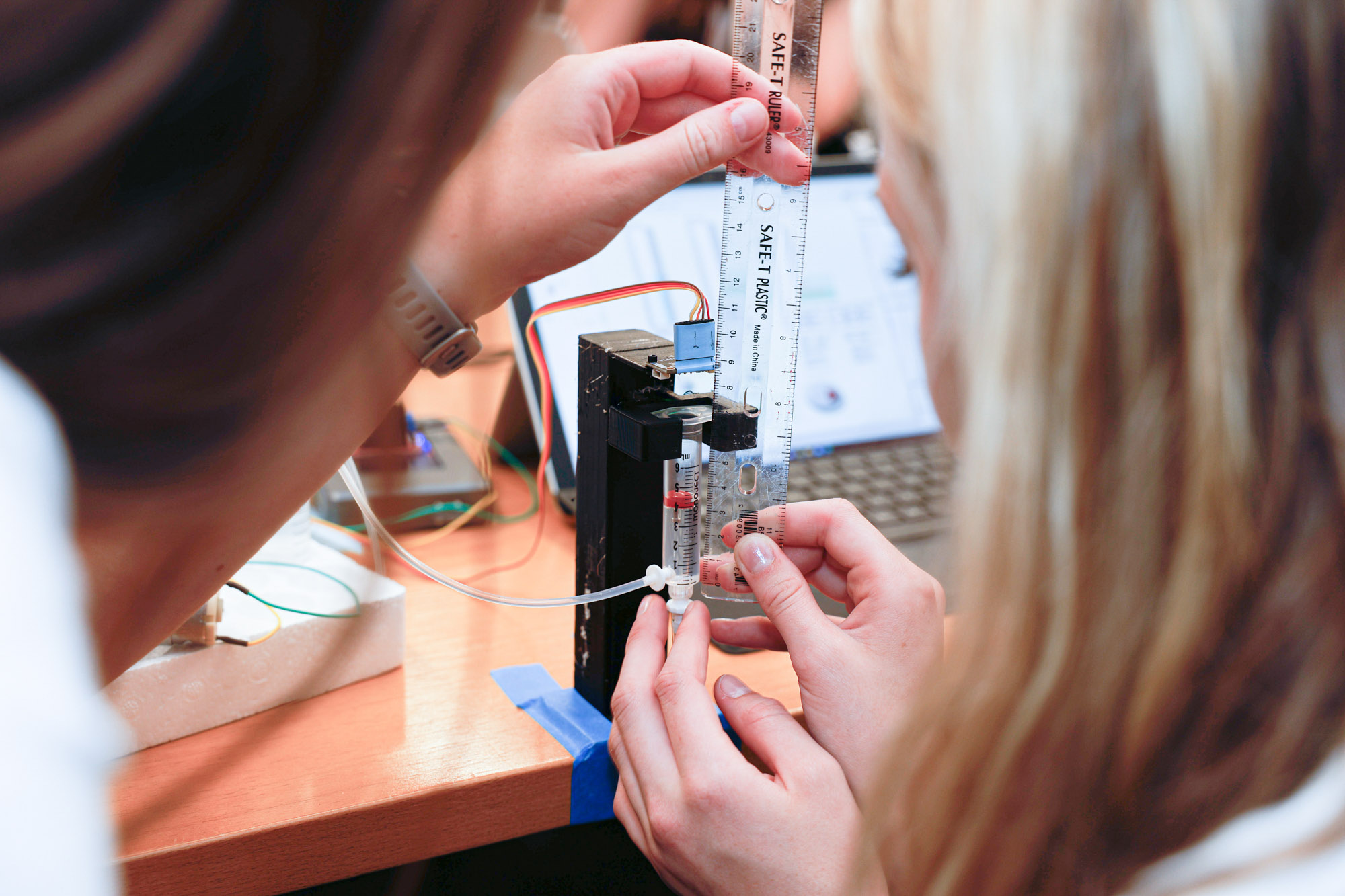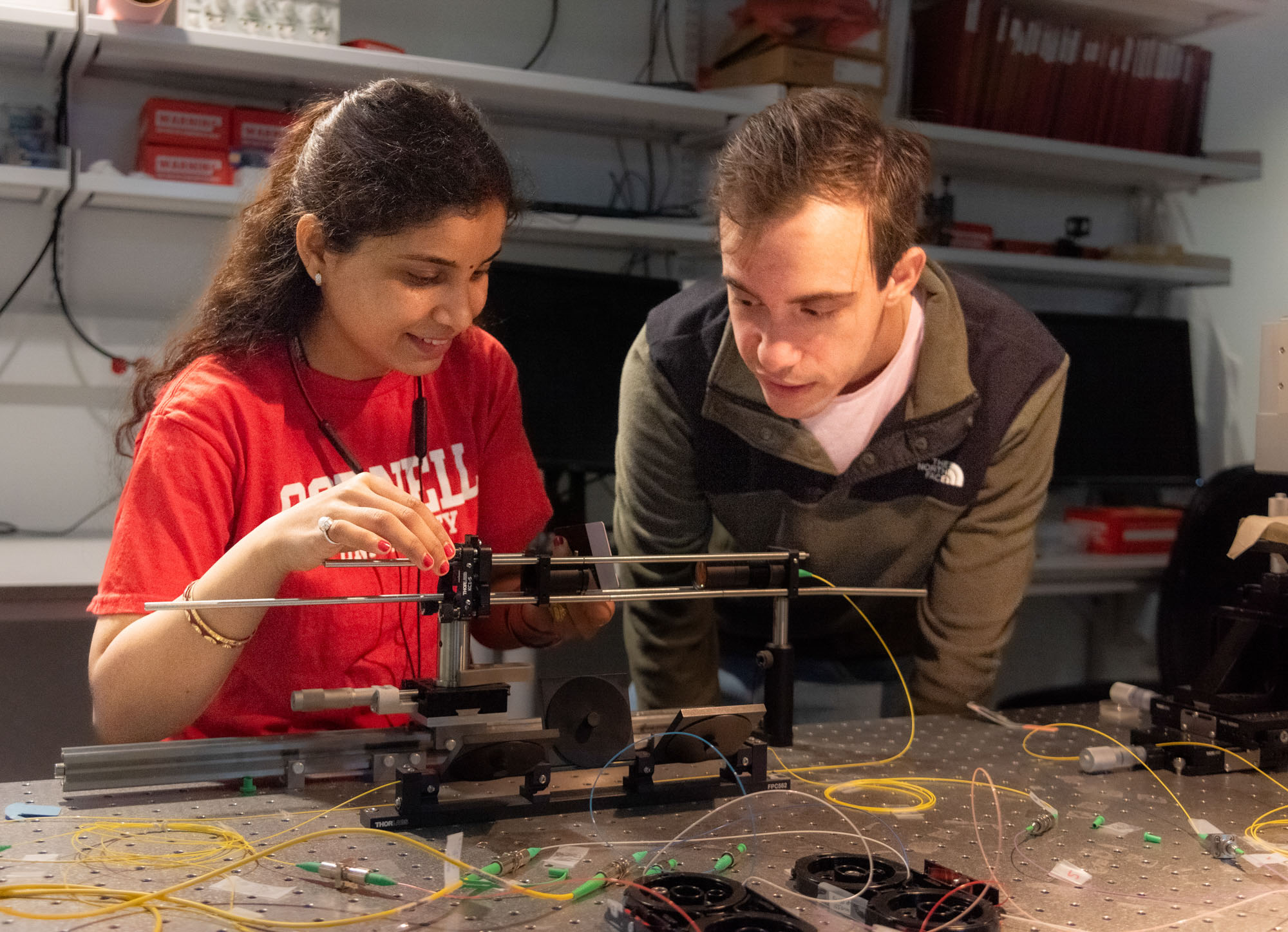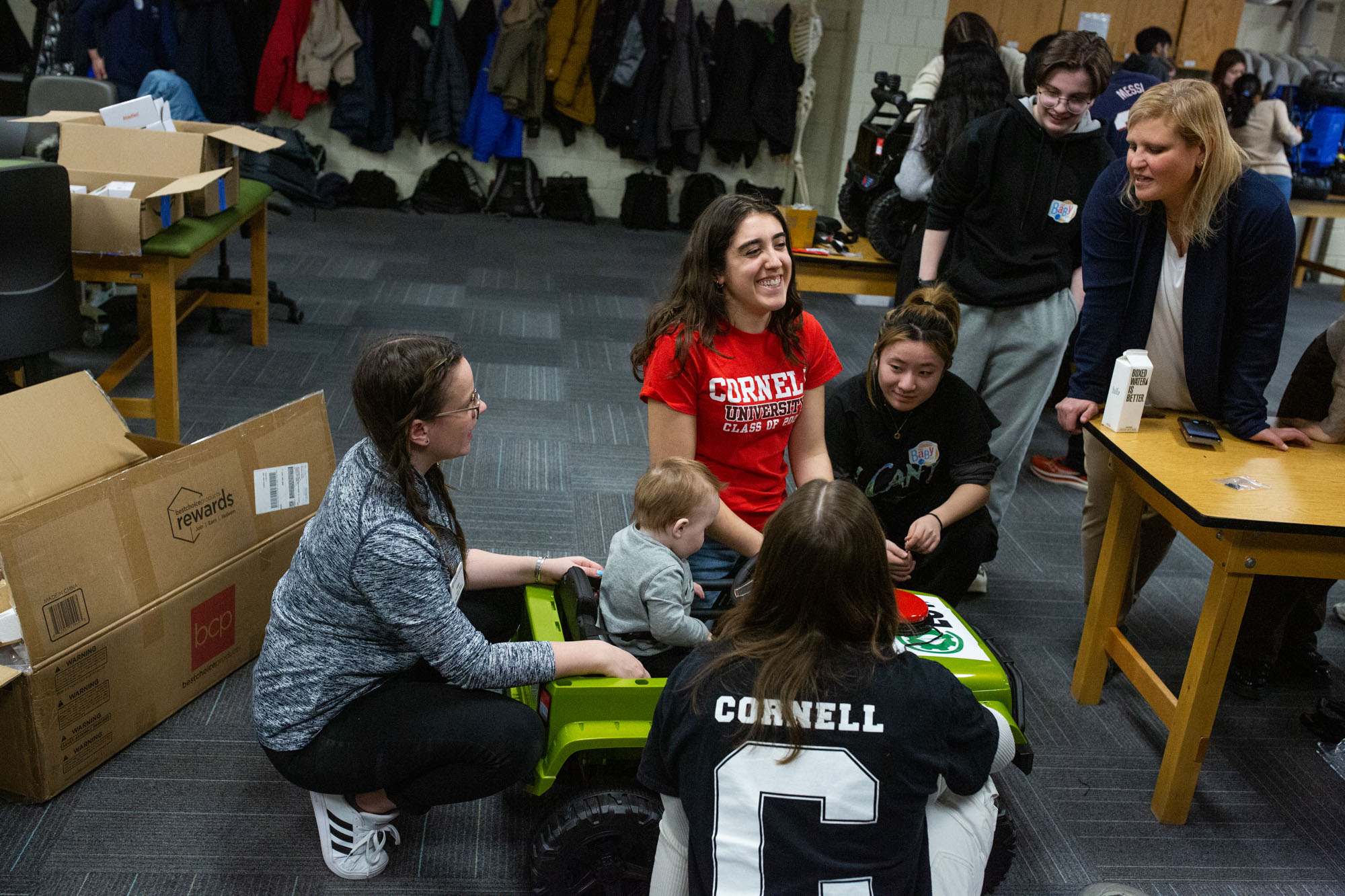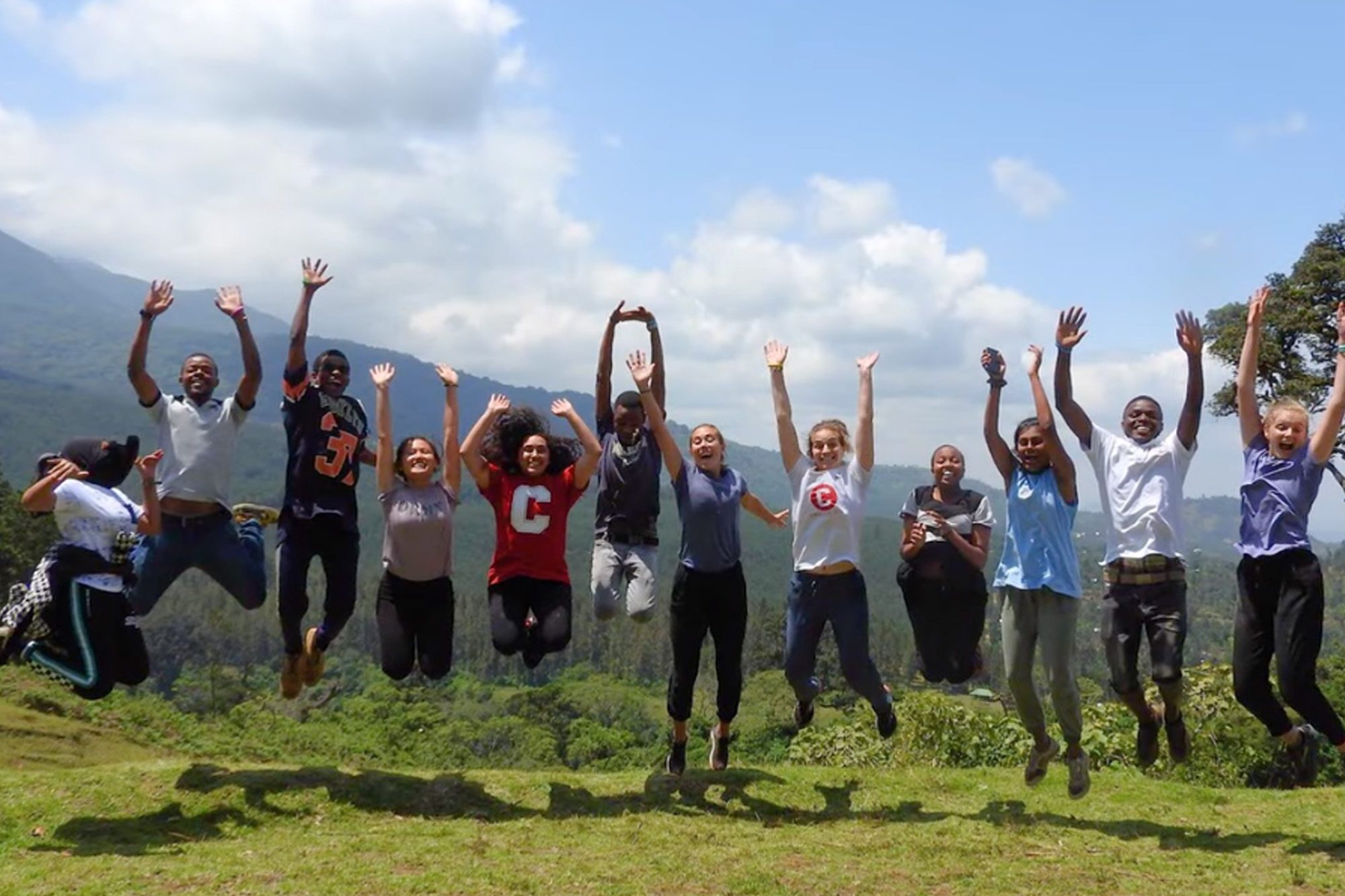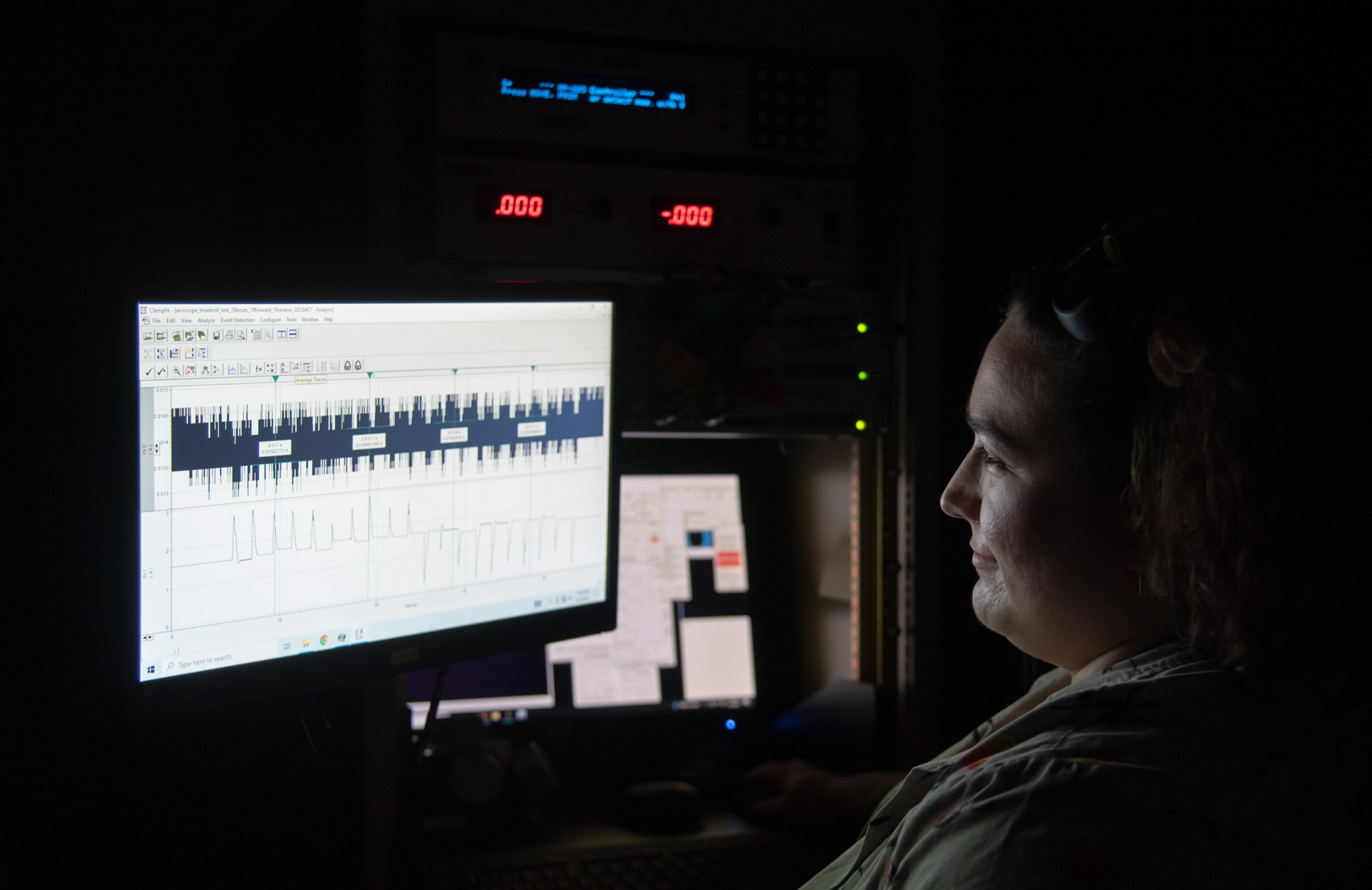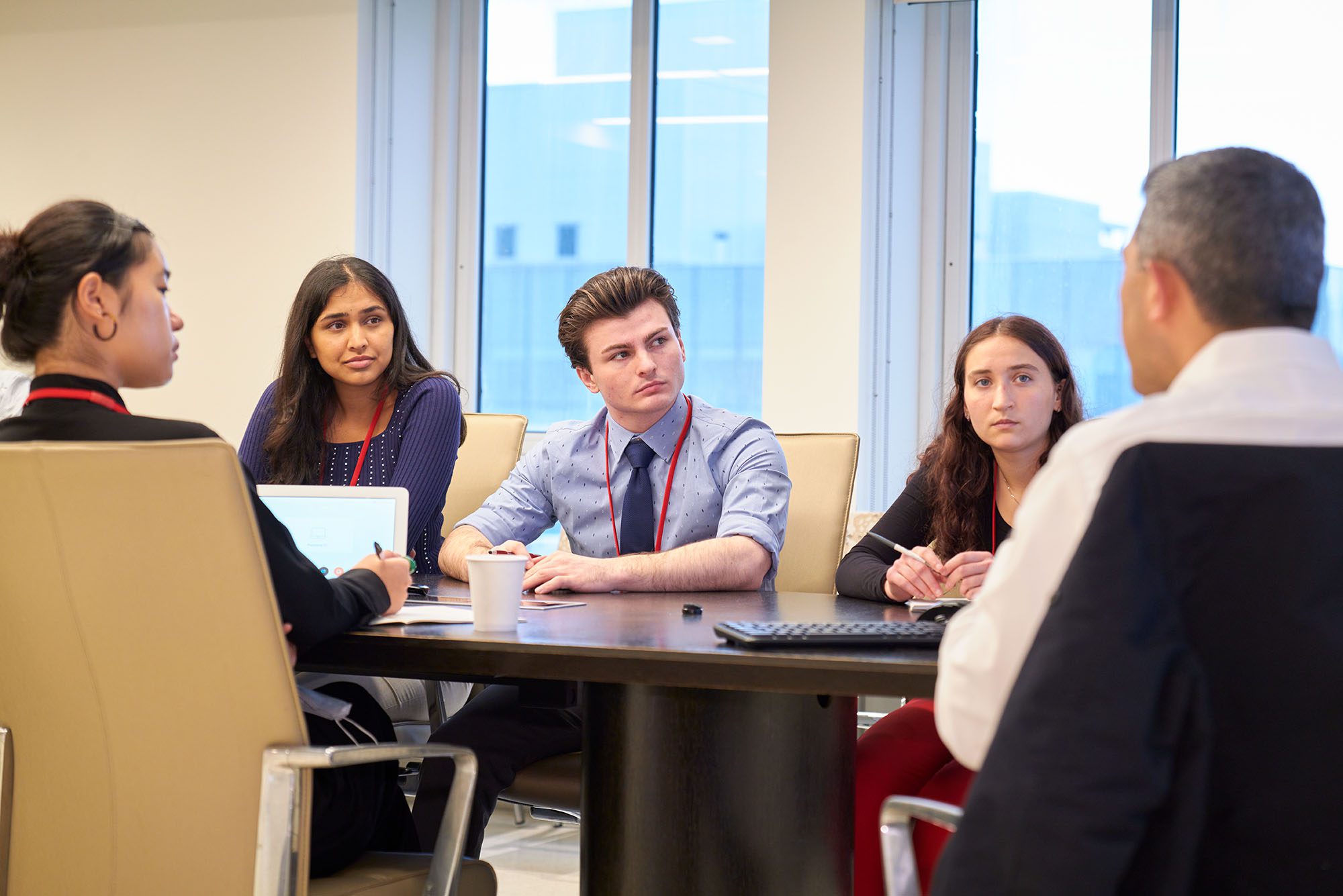Biomedical engineering majors are required to participate in an experiential learning opportunity as part of their coursework. Student organizations in biomedical engineering help connect classroom and career, develop professionalism, increase technical proficiency and refine ethical judgment.
“A major highlight was the opportunity to participate in the Cornell-Tanzania exchange program. Along with being immersed in a new culture, I got hands-on experience working in hospitals to repair medical devices and I shadowed doctors to better understand the healthcare climate in Tanzania. This experience affirmed my decision to pursue medical school to become a doctor and impact global health one day.”
Justine Burke Undergraduate Student
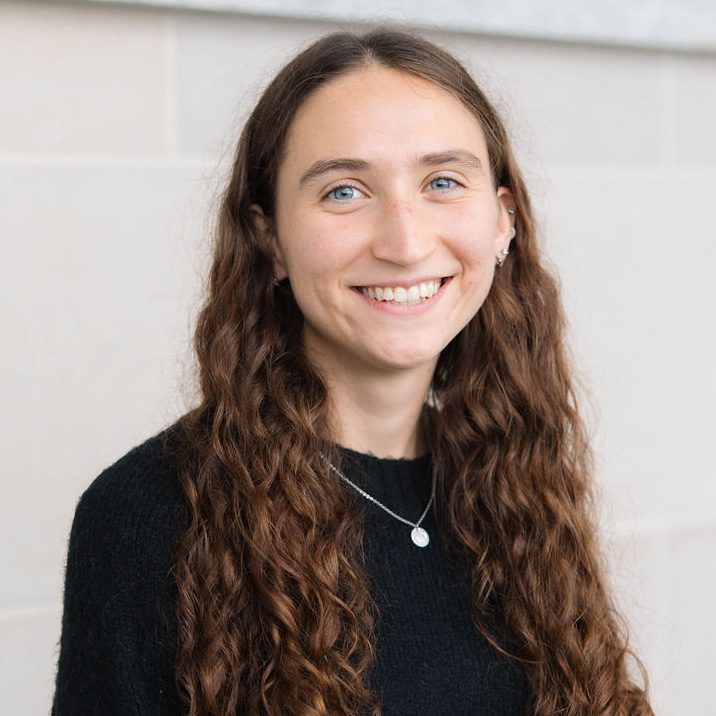
With over 1,000 recognized student organizations, Cornell has something for everyone. Popular options include:
-
![High school students work together to measure pressure in a cardiac bioreactor project in Weill Hall office.]()
Undergraduate Research
Most faculty members advise undergraduate research. Students often present their research at Cornell and scientific meetings, and some become authors on scientific papers.
-
![Two researchers - one wearing a red Cornell t-shirt and the other a green and black North Face pullover - conduct an experiment in the Adie lab]()
Student Project Teams
Students from all engineering fields work together on innovative designs and projects. They use tech, creativity, and leadership skills to build and showcase their projects in competitions and service projects. Teams especially relevant to biomedical engineering include Debut, Cornell University Genetically Engineered Machines (CU GEM), Engineering World Health, and Engineers Without Borders.
-
![students sit around toy car with child sitting inside as part of Adaptive Play design and build event at Ithaca College]()
Engaged Cornell
Engaged Cornell embodies Cornell’s founding commitment to “knowledge with a public purpose.” At the core of this initiative is innovation in teaching and learning through shared practices that connect students, faculty, and curricula with communities and the public realm across the globe.
-
![Undergraduate students jump together outside in Tanzania.]()
Cornell-Tanzania Exchange
In a mutual exchange program, students from Cornell’s Meinig School of Biomedical Engineering and Arusha Technical College in Tanzania combine their skills and knowledge to fix broken medical equipment and collaborate on senior design capstone projects.
-
![Graduate student in lab interprets optical imaging spectra on computer screen.]()
Jobs, Internships and Co-ops
Undergraduates often complete a summer internship or longer co-op experience to prepare for full-time careers or graduate school. More information on jobs, internships, and Co-ops can be found at the Engineering Career Center.
-
![Cordoba, Spain landscape]()
Study Abroad
Due to the ongoing development of our new curriculum, students planning to study biomedical engineering should not plan to study abroad during a fall/spring term. Summer research study abroad opportunities are highly encouraged. Reach out to Cornell’s Office of Global Learning before the end of your sophomore year to explore and determine an academic plan to incorporate the experience into your coursework.
-
![Undergraduate students in the clinical immersion program meet with doctors at Weill Cornell Medicine 2023.]()
Clinical Immersion Program
This two-week program at Weill Cornell Medicine in New York City occurs between the fall and spring semesters of your junior year. This unique experience positions you to fully grasp the role engineers play in the medical ecosystem, engaging in needs-finding activities, both as preparation for your senior design projects and future careers. For more information , please contact the undergraduate coordinator.

